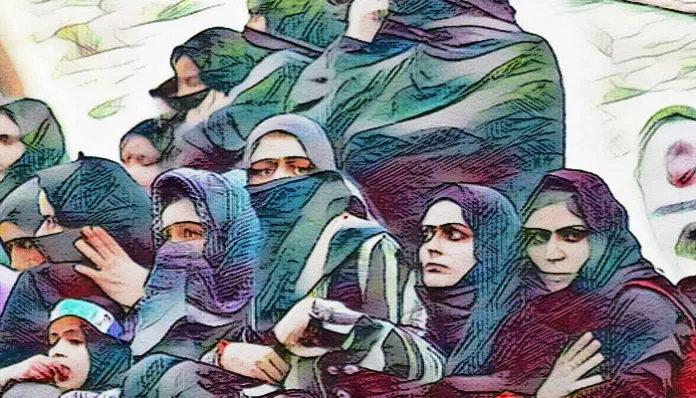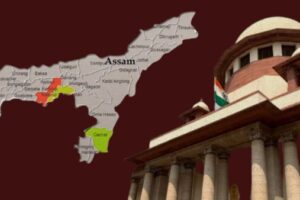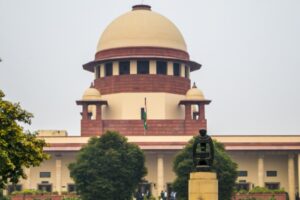
Does an ex-Muslim fall under the jurisdiction of the Shariat Act of 1937 or the secular laws of the country regarding matters of succession?
The Supreme Court has agreed to deliberate on this significant issue, issuing notice on a writ petition filed by a woman from Kerala. In the case of Sufiya PM v Union of India, the Supreme Court today issued notice on a writ petition seeking a declaration that individuals who were born Muslim but no longer practice Islam should not be subject to Shariat law.”
Deliberating the Issue
Safiya, the general secretary of an organization representing ex-Muslims in Kerala, is requesting a declaration that those who choose not to be governed by the Muslim Personal Law should be subject to the secular Indian Succession Act, 1925 instead, for both intestate and testamentary succession.
Acknowledging Significance
Led by Chief Justice DY Chandrachud and supported by Justices JB Pardiwala and Manoj Misra, the bench recognizes the weightiness of the matter and has summoned the Union of India and the State of Kerala to address the petition. To ensure a comprehensive examination, the Court has requested the assistance of the Attorney General of India. The case is scheduled for the second week of July 2024.
Key Points of Contention
- Initially, the bench expressed doubts about the petitioner’s argument that a non-believer would not be governed by the Shariat Act.
- Chief Justice Chandrachud remarked that being born Muslim automatically subjects one to the personal law, regardless of belief status.
- The bench questioned the feasibility of issuing a declaration on the non-applicability of personal law under Article 32 without challenging any statutory provision.
- Counsel Prashant Padmanabhan argued that under personal law, a Muslim individual can only bequeath up to 1/3rd of their properties via Will. He highlighted that the petitioner’s father is also a non-believer, emphasizing the relevance of the case.
- The counsel further stated that Muslim women are entitled to only 1/3rd of the share of male heirs, underscoring a gender disparity within the personal law.
- Chief Justice Chandrachud highlighted Section 3 of the Shariat Act, which requires a specific declaration for someone to be governed by Shariat law. He also noted Section 58 of the Indian Succession Act, which explicitly states that the Succession Act does not apply to Muslims, potentially creating a legal vacuum if the petitioner’s request for a declaration is granted.
- The bench emphasized that the petitioner had not contested Section 58 of the Indian Succession Act.
- Counsel Padmanabhan described the petitioner’s situation as unique, citing her father’s inability to bequeath more than 1/3rd of the property to her, with the rest going to her brother who has Down’s syndrome.
- He also mentioned the petitioner’s daughter, explaining that after her death, the entire property wouldn’t solely pass to her daughter due to claims from her father’s brothers.
- When questioned about the Court’s authority to issue a declaration under Article 32, Padmanabhan referenced Article 25 of the Constitution, asserting the right to non-belief and the Court’s broad powers to grant such declarations.
- Chief Justice Chandrachud remarked on the complexity of the situation, highlighting the absence of a secular law governing wills and legacies for Muslims and the potential void if no declaration is made under Section 3 of the Shariat Act.
Path Forward
The petitioner’s counsel noted that Section 58 is currently under review in another petition initiated by the Quran Sunnath Society, wherein the petitioner is also involved. Eventually, the bench consented to address the issue. Upon the petitioner’s counsel expressing the intention to address the concerns related to Section 58, the bench granted permission for amendments to the petition.
This case not only poses fundamental questions about personal belief and legal frameworks but also holds the potential to shape the contours of religious and secular coexistence within India’s legal system. As the proceedings unfold, the Supreme Court’s deliberations will undoubtedly be closely watched, with far-reaching implications for individuals’ rights and legal pluralism.
Read More: Supreme Court, Delhi High Court, States High Court, Other Courts, International





